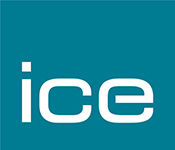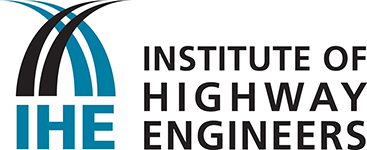Civil Engineering (Graduate Apprenticeship) BEng (Hons)
Course code H210
What is special about this course?
Are you a problem-solver? Could you design and construct infrastructure that will meet the needs of today without compromising the needs of the future?
Civil engineering is an exciting career, especially in the current climate. Civil engineers are best placed to address the technical, social, environmental, and economic challenges facing society, such as the climate emergency, the automation and digitisation of the construction industry, urbanisation, and the demands of a growing population.
Graduate apprentices learn and earn qualifications whilst gaining experience and developing professionally: you will finish your training ready to progress in your role and add value to your workplace. This Graduate Apprenticeship BEng (Hons) Civil Engineering is based on industry-defined needs. Developed in collaboration with employers, the education sector, and industrial professional bodies, it will guide you as you develop the knowledge, understanding, skills and competence that industry needs and expects from graduates.
Please click on the following links for information on Technology guidance and System requirements to study this course.
Special features
- Course fees funded by SAAS
- Work-based course with block-release delivery
- Experienced and professionally qualified lecturers
- Industry standard software and equipment
- This degree is accredited by the Joint Board of Moderators (JBM) comprising the Institution of Civil Engineers, Institution of Structural Engineers, Institute of Highway Engineers, and the Chartered Institution of Highways and Transportation on behalf of the Engineering Council as fully satisfying the educational base for an Incorporated Engineer (IEng). See www.jbm.org.uk for further information.
Entry requirements
- 3 Scottish Highers at grades BBC or above including Maths plus one other STEM subject OR
- 2 A levels at grades BC or above in Maths plus one other STEM subject
- Alternatively, NC Civil Engineering or Foundation Apprenticeship Civil Engineering
- You must be in full time employment as a trainee Civil Engineer or Civil Engineer Technician and have the approval of your employer prior to application
- You must have regular and reliable access to the internet and a computer for any online degree at UHI in order to take advantage of our full range of online learning services, which include support from your tutors and fellow UHI students as well as access to UHI’s Virtual Learning Environment and vast online learning library. Click here for more information on the minimum requirements
Advanced entry to year two:
- Successful completion of Modern Apprenticeship (HNC) Civil Engineering or HNC Civil Engineering (plus equivalent work experience) may allow direct entry to year two
Advanced entry to year three:
- Successful completion of DipHE or HND Civil Engineering (plus 2 years equivalent industry experience) may allow direct entry to year three
Advanced entry to year four:
- Successful completion of BEng Civil Engineering (plus 3 years equivalent industry experience) may allow direct entry to year four

Year 1 - CertHE
You will study the following core modules:
- Civil engineering technology
- Construction materials
- Geotechnical engineering 1
- Maths for civil engineering 1
- Site surveying and communications
- Structural engineering 1
Year 2 - DipHE
You will study the following core modules:
- Civil engineering professional practice 1 (40 credits)
- Geotechnical engineering 2
- Hydrological engineering
- Maths for civil engineering 2
- Structural engineering 2
Year 3 - BEng
You will study the following core modules:
- Civil engineering measurement and contract law
- Civil engineering professional practice 2 (40 credits)
- Geotechnical engineering 3
- Highway engineering
- Structural engineering 3
Year 4 - BEng (Hons)
You will study the following core modules:
- Dissertation (40 credits)
- Planning and project management
- Structural engineering 4
- Work based project (40 credits)
How will I study my course?
- Full-time
- This is a work-based qualification: learning happens in the workplace and is supported by block-release delivery, giving you time outside of your work environment to undertake certain elements of the course.
- During block release, you will be taught by a combination of live, online, and face to face lectures, tutorials and workshops, which will be contextualised to your practice; you will be supported by a mentor. Outwith these structured classroom blocks, the learning will be in the workplace, supported by activities and content on the university's Virtual Learning Environment (VLE), with evidence from the workplace used in assessment.
How long will my course last?
- Full-time: 4 years @ 40 hours per week
Number of hours per week indicates the total number of hours you should dedicate to the course, which includes time carrying out the roles and responsibilities of your job, gaining experience, and producing workplace evidence (work-based learning).
Where can I study my course?
- Inverness
Start date
- September
Fees
For students normally domiciled in Scotland, with a term-time address in Scotland, the following fees apply:
This includes
- EU nationals with settled or pre-settled status in the UK,
- EEA/Swiss nationals with settled status in the UK
- EEA/Swiss nationals with pre-settled status who are self-employed or migrant workers in the UK.
| Study Mode | 2024-25 | 2025-26 |
|---|---|---|
| Full-time (120 credit modules) per year | £1,820 | £1,820 |
| Part-time (structured) (3 x 20 credit modules) per year | £915 | £915 |
| Part-time (unstructured per module) (per 20 credit module) | £305 | £305 |
Rest of UK students
For students normally domiciled in the rest of the UK (England, Wales and N. Ireland, including Channel Islands and the Isle of Man) and with a term-time address in Scotland, studying full time, the following fees apply:
| Year | Level | 2024-25 Full-time | 2025-26 Full-time |
|---|---|---|---|
| Year 1 | CertHE | £9,250 | £9,250 |
| Year 2 | DipHE | £9,250 | £9,250 |
| Year 3 | Degree | £9,250 | £9,250 |
| Year 4 | Honours | free | free |
4th year free only for students studying full-time, on continuous study, who have paid for the previous three years at the University of the Highlands and Islands.
Part-time (per 20 credit module) - £1,542.
Fees are payable in advance each academic year unless otherwise agreed.
There are a number of funding options available to UK and EU students to help you pay for your studies and your cost of living while studying (see the Funding section opposite).
EU/EEA and Swiss nationals without settled or pre-settled status in the UK
Following the UK’s departure from the European Union, the Scottish Government confirmed that EU/EEA and Swiss nationals, who do not have settled or pre-settled status, will be considered as international for fee purposes. Students will get an automatic scholarship of £4,000 per annum and the 4th year of study will be free for those studying full-time, on continuous study, who have paid for the previous three years at the University of the Highlands and Islands.
This includes EEA/Swiss nationals with pre-settled status who are not self-employed or migrant workers in the UK.
| Year | Level | 2024-25 Full-time | With scholarship | 2025-26 Full-time | With scholarship |
|---|---|---|---|---|---|
| Year 1 | CertHE | £15,996 | £11,996 | £16,950 | £12,950 |
| Year 2 | DipHE | £15,996 | £11,996 | £16,950 | £12,950 |
| Year 3 | Degree | £15,996 | £11,996 | £16,950 | £12,950 |
| Year 4 | Honours | £15,996 | Free | £16,950 | Free |
Students will need Student Route visa sponsorship to study in the UK.
International students
For students who do not normally reside in the UK or European Union and with a term-time address in Scotland, the following fees apply:
| Study Mode | 2024-25 | 2025-26 |
|---|---|---|
| Full-time per year (120 credit modules) per year | £15,996 | £16,950 |
| Part-time (structured) (3 x 20 credit modules) per year | £7,998 | £8,475 |
| Part-time (unstructured per module) (per 20 credit module) | £2,666 | £2,825 |
Part-time study is not open to international student requiring Student Route visa sponsorship to study in the UK.
Further information on international course fees.
A no fee increase guarantee is available for self-funding full-time and structured part-time rest of the UK, EU and international undergraduate students for continuous study for the same award, up to the permitted standard time limit for the relevant award.
Funding
The course fees will be funded by SAAS, for more information please refer to this graduate apprenticeship guide.
Additional costs
Accommodation
This GA course requires block time at UHI Inverness Campus. If you require accommodation for these periods, it is the responsibility of the employer and the GA to make the necessary bookings. There is no additional funding to support travel and accommodation. You can enquire about the use of student accommodation for the duration of any block periods.
For more information, please follow the link student accommodation.
What can I do on completion of my course?
Once you have successfully completed this course, you can continue to build on your career and will be eligible to apply for Professional Qualification (IEng).
Can I progress into further study?
You may wish to progress from this BEng (Hons) Civil Engineering (Graduate Apprenticeship) to:
- MSc Civil Engineering
Is there more information available online?
You can use the above QR code to connect directly to the course details.
Apply for Civil Engineering (Graduate Apprenticeship) BEng (Hons)
We are delighted that you are thinking about studying at the University of the Highlands and Islands. We operate a fair and open admissions system committed to equality of opportunity and non-discrimination. We consider all applications on merit and on the basis of ability to achieve, without discrimination on grounds of gender, age, disability, ethnicity and socio-economic background. We welcome applications from all prospective students and aim to provide appropriate and efficient services to students with disabilities.



